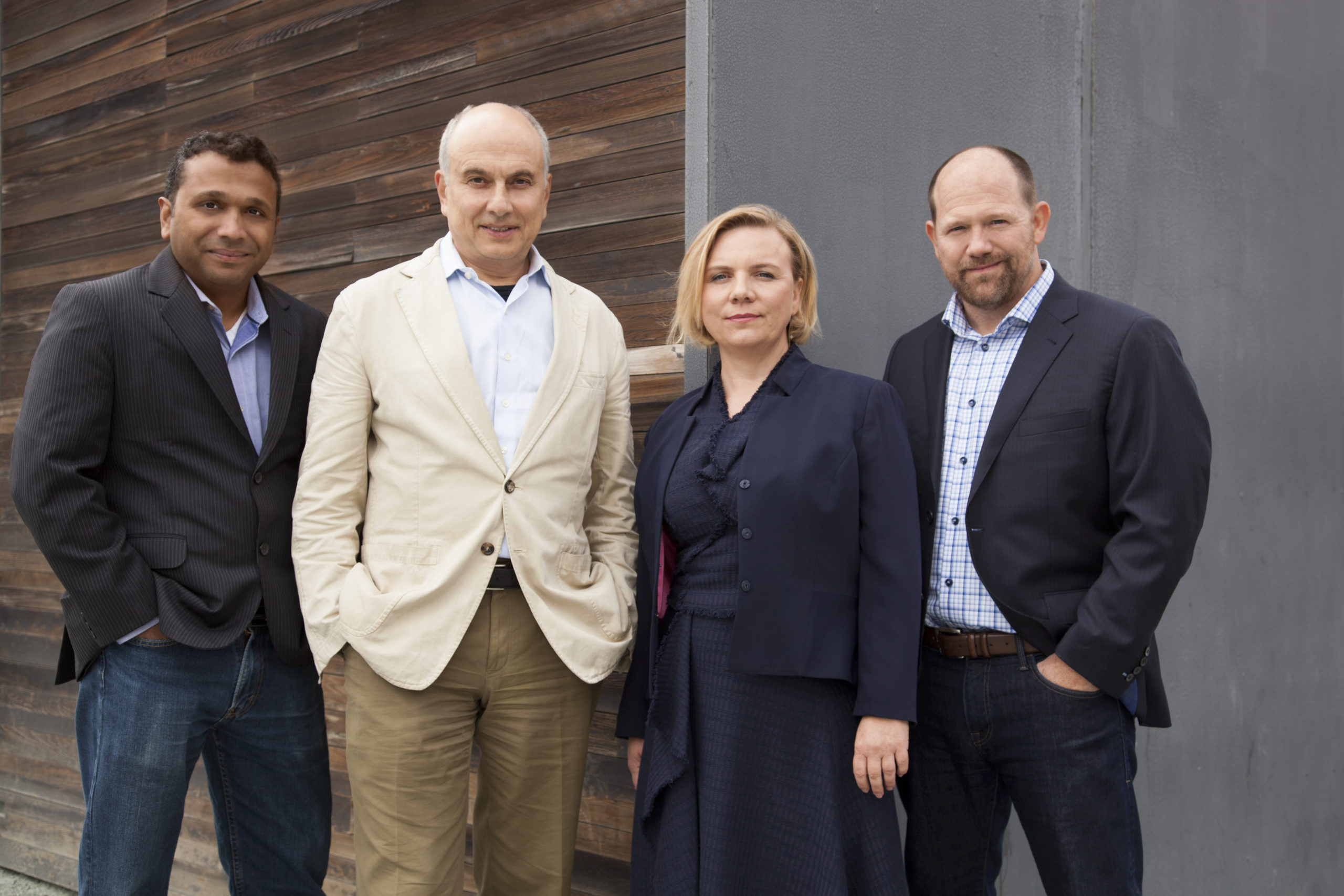Photo – Hope Cochran and Shamir Karkal, Founder and CEO of Sila
We are excited to announce our investment in Sila. Sila is taking on the challenging world of fintech infrastructure and building a platform to allow fintech developers to launch and scale their companies. We were joined in the Seed Round by our co-lead, Oregon Venture Fund, as well as existing investors Mucker Capital, 99 Tartans, Jerry Neumann, and Taavet Hinrikus.
When we look around at the areas of the economy – especially at this very disruptive time – that have the potential to offer more opportunity to people from all walks of life, one of those key areas of innovation is the flow of money: the speed of transfer, the fees involved, and how it is stored. This area of fintech has been growing, but not as quickly as SaaS and other B2B based businesses. Why is that? Regulatory approvals are challenging, the processes disaggregated and expense to get there is tremendous.
Building a new fintech startup is a difficult and often two-year endeavor. The existing regulatory frameworks make it difficult for new startups to quickly build, launch, and iterate products in the same way as other tech startups. The process is filled with regulatory hurdles that take years of time and deep expertise. The result is a company that cannot iterate and experiment on their new concept until the process of moving money can be solved – delaying proof of product/market fit much longer than in other areas.
Below is a non-exhaustive list of the steps required to build a fintech startup that handles money:
- Compile know your customer (KYC) and anti-money laundering (AML) documentation
- Create detailed fund-flow diagrams and specs
- Find a sponsoring bank (often a white label bank such as Bancorp) to provide the banking backend and enter their compliance process
- Find a processor for ACH/Wires/Cards
- Apply for FINCEN (Financial Crimes Enforcement Network) registration
- Apply for money transmitter licenses in all 50 states or where you plan to do business
- Write custom code to connect your banking partner and ACH processor and your own product
- Launch product as a beta
This process largely went unchanged from the late 90s to 2014 and was the process followed by the large original fintech players (Simple, Square, Stripe, etc.). On average, fintech companies take close to 2 years to work through this cycle before launching their product as a beta.
Our excitement in Sila began over a year ago after first meeting CEO Shamir Karkal and the rest of the initial team through Oregon Venture Fund – a long time partner and investor in the round. We met up again at one of our annual Portland area dinners. Shamir has spent his entire career in the fintech world: from co-founding and scaling Simple, the first neo-bank, and shepherding the company to a successful exit, to running the API and infrastructure platform for an international banking company, Shamir has developed deep expertise across the regulatory and infrastructure aspects of the industry.
Sila was founded with the core mission of fixing the problem of launching a fintech company or fintech features. Their main offering is a set of simple, secure, and compliant tools to help fintech developers launch their products and comply with financial regulations. The objective is to enable fintechs to get to market quickly and then be able to iterate on their offering, rather than working through ~2 years of regulatory and architectural challenges before being able to test their product. This is a problem that the Sila team knows in intimate detail.

Via a simple API integration, developers can leverage Sila’s regulatory framework, send and receive funds, integrate with bank accounts, and seamlessly conduct KYC/AML checks, all while maintaining a single integration. We believe that Sila can significantly change the way fintech companies are built and can become the de facto platform in the space.
Sila represents everything we look for in our early stage investments: a dedicated and high caliber team led by an entrepreneur with deep industry expertise, a company committed to being built in the Northwest, a massive market opportunity, and true differentiated technology that solves a real problem. We are incredibly excited to start the journey with Sila and look forward to helping them build an amazing company that opens up massive opportunity across the fintech world.